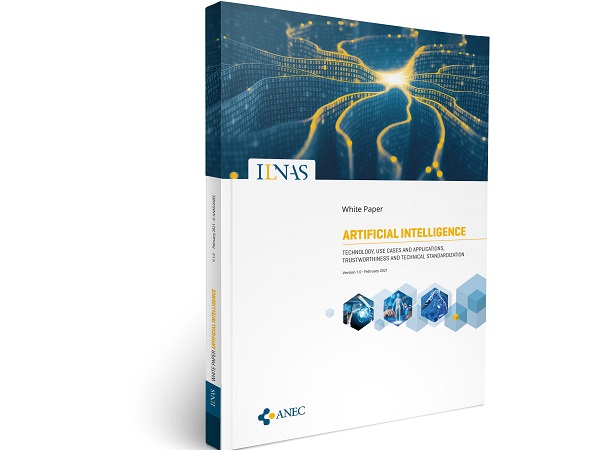 Credit: ILNAS
Credit: ILNAS
The Luxembourg Institute for Standardisation, Accreditation, Safety and Quality of Products and Services (ILNAS) has announced the publication of its new white paper on artificial intelligence (AI).
AI has attracted growing interest from companies and the general public for several years. It has the potential to improve many aspects of daily life, but its gradual installation in society also brings new risks and challenges that must be mastered to benefit fully. In this context, initiatives are multiplying to better supervise this technology. Whilst the European Commission is making progress in defining a legal framework allowing a reliable and ethical use of AI, technical standardisation can also support this approach by proposing good practices.
In order to promote the role that technical standardisation plays in the adoption of AI, ILNAS has published a new white paper "Artificial Intelligence - Technology, Use Cases and Applications, Trustworthiness and Technical Standardisation".
The white paper introduces the key concepts to understanding AI technology and its challenges in an accessible way. Technical standardisation serves as a common thread to present and address these challenges throughout the document.
AI is approached according to four complementary axes: a presentation of the historical and current context, a technical introduction that establishes the fundamental concepts of AI, an analysis of the fields of application of AI and an overview of AI reliability issues.
Considering the challenges related to the field of AI and the interest it arouses at the national level, ILNAS has been following the related standardisation projects since their beginnings in 2017. The technical standards currently being developed will offer useful good practices to all stakeholders involved in the implementation of AI. Through this white paper, ILNAS thus aimed to offer an overview of the concepts and challenges related to AI while connecting them with its normative experience in the field, in the interest of the national economy. Readers are expected to be able to seize the opportunities linked both to the use of these technical standards and to a more significant involvement in the development process of future international and European standards by becoming national delegates in standardisation.
The white paper “Artificial Intelligence - Technology, Use Cases and Applications, Trustworthiness and Technical Standardization” is available online at portail-qualite.public.lu/dam-assets/publications/normalisation/2021/ilnas-white-paper-artificial-intelligence.pdf.








